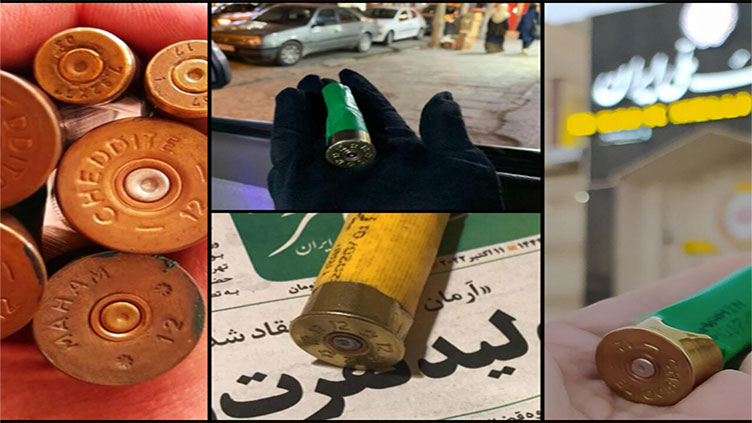EU-made ammunition used in Iran repression: Iranians demand answers

World
An investigation has provoked a furious reaction from Iranians in Iran and around the world.
TEHRAN (AFP) - An investigation has provoked a furious reaction from Iranians in Iran and around the world. In an article published November 25, the Observers team published photographs showing 13 shotgun cartridges bearing the logos of Cheddite, a French-Italian ammunition manufacturer, that had been recovered from protests in Iran. The presence of EU-made ammunition in Iran is an apparent violation of a 2011 EU sanction banning the "export, directly or indirectly, [of] equipment which might be used for internal repression" in Iran.
The article was massively shared by Iranians on Twitter, Telegram and other social networks. One poster wrote: "Hundreds of Iranians have been blinded by shotgun pellets made by a Franco-Italian company. What does this company doing business with the mullahs’ regime have to say about it?"
Shotguns have been widely used by all branches of Iran’s security services since protests started on Sept. 16, 2022 after the death of Mahsa Amini. Images posted on social media show protesters with dozens or hundreds of puncture wounds from shotgun pellets. Hundreds of protesters are reported to have been blinded in one or both eyes by the ammunition, and Amnesty International says at least 20 people have died after being hit by shotgun blasts.
In France, the Foreign Ministry has opened an investigation.
Iranian protesters in Germany stage hunger strike
A group of Iranians reached the final day of a hunger strike on Friday while camped out in tents outside the Islamic republic s consulate in Frankfurt in support of the protest movement back home.
Iran has been rocked by huge demonstrations since the September death in custody of Mahsa Amini, arrested for allegedly violating the country s dress code for women.
Hundreds of people have been killed and thousands arrested in the unrest, described by authorities as "riots", prompting further protests in solidarity around the globe, including in Germany.
Outside the Islamic republic s Frankfurt consulate, a group of Iranian demonstrators had camped out in tents in the freezing winter weather to show support for the protest movement.
Eight of them then decided to go on hunger strike, choosing only to drink water.
"I am motivated by the murder of young people, women -- children -- and all people who are fighting peacefully for their freedom," Hossein Zandi, who had been on hunger strike for 13 days, told AFP.
"My goal is that this consulate should be closed," added the 53-year-old.
Ehsan Abbasy, who had stopped eating 24 days earlier, said he was starting to feel the impact.
"My body has become very cold," he said, trying to keep warm in front of a heater.
The protesters went on hunger strike for different periods of time, ranging from five to 24 days.
They were supported by a network of volunteers from the local Iranian community and received daily medical check-ups to ensure their health was not in danger.
However, their hunger strike was finally due to come to an end on Friday.
One supporter, Fariba, said Iranians were rallying round to help each other "like a big family".
"What has happened (in Iran) in the past three months has been unique during the past forty years," said the 55-year-old, who only gave one name.
"We see real unity among Iranians."
Several hundred Iranians also staged a demonstration outside the Frankfurt consulate Friday against the regime in Tehran, chanting and waving signs that read "Down with the oppressor".

